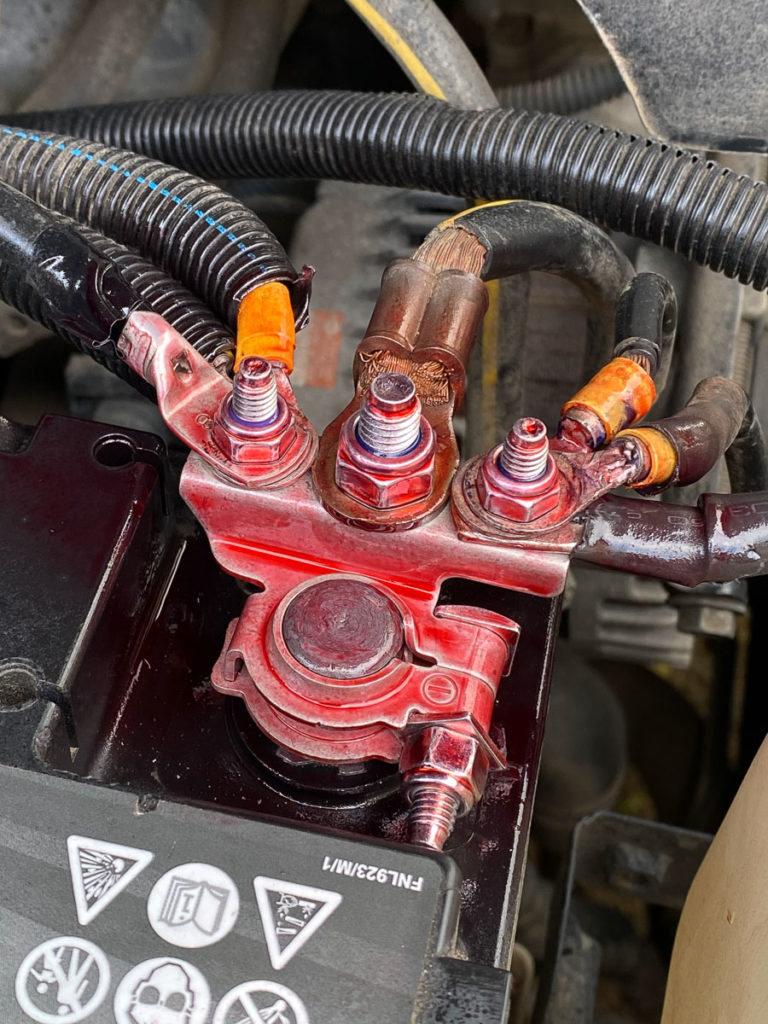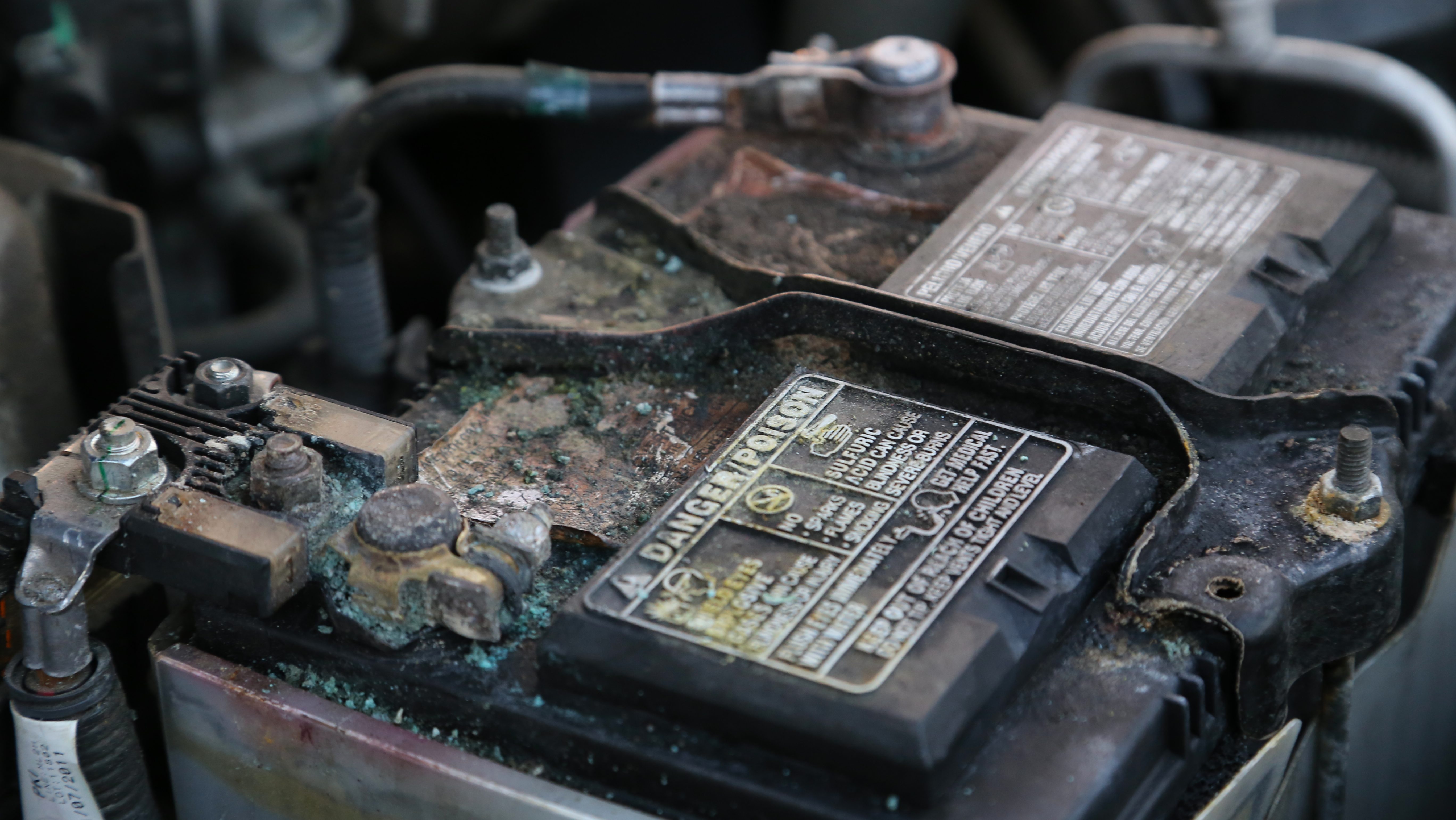How to Prevent Battery Corrosion
To prevent battery corrosion, regularly clean terminals and apply a protective coating to them. This simple maintenance routine can greatly extend your battery’s lifespan and performance.
Your vehicle’s battery is a crucial component that powers the electrical systems of your car. But if not properly maintained, battery corrosion can occur, leading to poor performance and even early failure. In this guide, we will explore the causes of battery corrosion and provide you with easy-to-follow tips on how to prevent it.
By following these preventive measures, you can ensure that your battery stays in top condition and avoid the headaches that come with dealing with a corroded battery. Let’s dive in and learn how to keep your battery corrosion-free for optimal performance on the road.

Credit: www.cmhrenault.co.za
Understanding Battery Corrosion
Battery corrosion is a common problem that many of us have encountered at some point. It can be frustrating and inconvenient, but with a little knowledge, it can be easily prevented. Understanding the causes and effects of battery corrosion is the first step towards keeping your batteries in good working condition.
Causes Of Battery Corrosion
Battery corrosion occurs when sulfuric acid from the battery reacts with the metal terminals, usually made of lead. There are several factors that can contribute to the formation of corrosion on battery terminals:
- High temperatures, which can speed up the chemical reactions involved in corrosion.
- Overcharging the battery, causing excess hydrogen gas to be released and react with the terminals.
- Undercharging the battery, leading to the accumulation of sulfuric crystals on the terminals.
- Exposure to moisture, which accelerates the corrosion process.
By understanding these causes, you can take preventive measures to minimize the risk of battery corrosion.
Effects Of Battery Corrosion
Battery corrosion can have several negative effects on your batteries and electronic devices:
- Reduced battery performance and lifespan.
- Poor electrical contact between the battery and device, leading to intermittent or no power.
- Damaged battery terminals, which may require costly repairs or replacement.
- Increased risk of electrical shorts or fires due to compromised electrical connections.
It’s important to regularly check your batteries for any signs of corrosion and take immediate action to prevent further damage.

Credit: q20.co.za
Preventive Maintenance Measures
Proper
Regular Cleaning And Inspection
Regularly clean the battery terminals to
Applying Anti-corrosion Coating
Apply a specialized coating to the terminals after cleaning to create a barrier against corrosion. This coat acts as a shield against harmful elements.
Choosing The Right Battery
Choosing the right battery is crucial to prevent battery corrosion. Different types of batteries have varying levels of maintenance requirements and longevity. Let’s discuss the two main categories of batteries that can help in preventing battery corrosion:
Maintenance-free Batteries
Maintenance-free batteries are sealed and require no topping up with water. They are designed to be leak-proof, reducing the risk of acid leakage and subsequent corrosion. This type of battery is a great choice for individuals looking for easy-to-maintain options.
Sealed Lead-acid Batteries
Sealed lead-acid batteries are completely sealed, preventing any acid leakage. They are designed to be spill-proof, making them ideal for applications where potential leakage poses a risk of corrosion. These batteries are commonly used in high-demand situations due to their reliability and low maintenance requirements.
Proper Storage Practices
If you want to maximize the lifespan of your batteries and prevent corrosion, proper storage practices are essential. By following these guidelines, you can ensure that your batteries stay in excellent condition during periods of non-use.
Storing In A Cool And Dry Place
Storing your batteries in a cool and dry place is crucial for preventing corrosion. Extreme temperatures can damage the battery and accelerate the corrosion process. Ideally, you should store your batteries in a temperature-controlled environment, away from direct sunlight and sources of heat.
Here are some simple tips for storing your batteries:
- Find a dedicated storage area for your batteries, such as a cool and dry cupboard or a battery storage box.
- Avoid storing batteries in humid areas, as moisture can lead to corrosion. If necessary, use moisture-absorbing packets or desiccants in the storage area to keep the humidity in check.
- Keep batteries away from any conductive materials, such as metal objects or other batteries, as this can increase the risk of short-circuits.
- Ensure that the battery contacts are protected from any potential damage by placing them in individual plastic bags or using battery cases.
Using Battery Maintainer/trickle Charger
In addition to proper storage, using a battery maintainer or trickle charger can help prevent battery corrosion. These devices provide a slow and steady charge to the battery, keeping it at an optimal voltage level and preventing self-discharge.
Here are a few advantages of using a battery maintainer or trickle charger:
- They help maintain the battery’s charge level, especially during long periods of inactivity.
- They prevent the battery from sulfating, a common cause of battery failure and corrosion.
- They automatically adjust the charging rate to avoid overcharging, which can also lead to battery corrosion.
- They extend the overall lifespan of the battery, saving you money in the long run.
Investing in a good quality battery maintainer or trickle charger is a wise move to protect your batteries and ensure they are always ready to perform when you need them.
Addressing Existing Corrosion
When addressing existing battery corrosion, it’s important to do so safely and effectively to prevent further damage. Proper handling and cleaning techniques are essential to extend the life of your batteries and prevent potential hazards. Below are some steps you can take to clean battery corrosion and prevent further damage.
Cleaning Corrosion Safely
Before cleaning the battery corrosion, it’s crucial to ensure your safety. Wear protective gloves and eye goggles to avoid any potential contact with corrosive substances. Additionally, work in a well-ventilated area to minimize exposure to harmful fumes. Once these precautions are in place, you can begin the cleaning process.
Using Baking Soda Solution
A safe and effective way to clean battery corrosion is by using a baking soda solution. Start by mixing three tablespoons of baking soda with one tablespoon of water to create a paste. Apply the paste to the corroded areas of the battery terminals using a small brush or toothbrush. Be thorough in covering the corroded areas with the paste, and let it sit for a few minutes to allow the baking soda to react with the corrosion.
After the paste has had time to work, use a damp cloth or sponge to wipe away the baking soda mixture and corrosion from the battery terminals. Be sure to remove all residue and dry the terminals completely before reinstalling the battery. This method is an effective way to neutralize the acidic corrosion and prevent further damage to the battery terminals.

Credit: blog.amsoil.com
Frequently Asked Questions On How To Prevent Battery Corrosion
How Do You Keep Batteries From Corroding?
To prevent battery corrosion, keep the contacts clean, remove old batteries promptly, store in a dry place, and use the right battery type. Regularly check for signs of corrosion and replace as needed. Applying a thin layer of petroleum jelly can also help prevent corrosion.
What Can I Put On Battery Terminals To Prevent Corrosion?
To prevent corrosion on battery terminals, you can apply petroleum jelly or a battery terminal protector spray. These products create a barrier between the terminals and the outside elements, preventing corrosion buildup. Regularly cleaning and inspecting the terminals is also important for maintenance.
What Stops Battery Acid Corrosion?
Battery acid corrosion can be prevented by using battery terminal protectors, applying a baking soda solution, or installing felt washers.
What Causes A Battery To Keep Corroding?
Batteries corrode due to sulfuric acid leakage caused by overcharging, aging, or hot temperatures. Prevent corrosion with proper maintenance.
What Causes Battery Corrosion?
Battery corrosion is typically caused by the buildup of hydrogen gas from overcharging or undercharging.
How Can I Prevent Battery Corrosion?
To prevent battery corrosion, regularly clean battery terminals, use anti-corrosion spray, and keep the battery dry.
Is Battery Corrosion Dangerous?
Yes, battery corrosion can be dangerous as it may result in electrical malfunctions and potentially harmful chemical leaks.
Conclusion
Preventing battery corrosion is essential to ensure the longevity and optimal performance of your batteries. By following these simple steps of cleaning and maintaining your batteries regularly, you can avoid the damage caused by corrosion. Remember to inspect for leaks, clean the terminals, and use anti-corrosion protectants.
These practices will not only extend the life of your batteries but also save you from the hassle of unexpected battery failures. Take care of your batteries, and they will take care of your devices.

